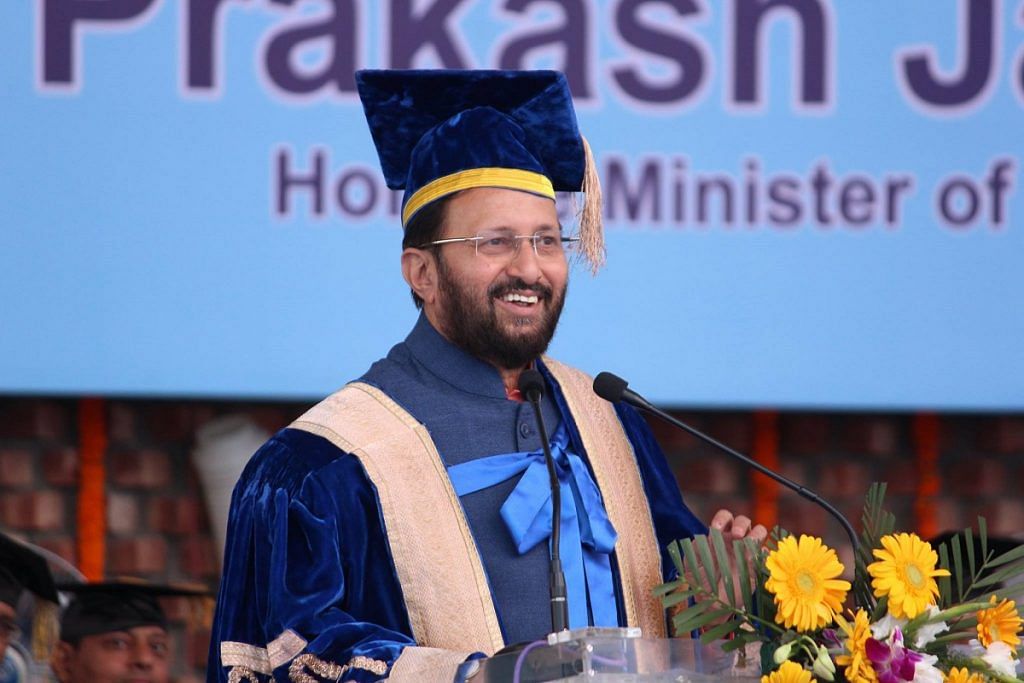Govt to scrap all other regulatory bodies like UGC and AICTE; the plan is likely to go through the consultative process and approvals given in June.
New Delhi: The human resource development ministry is planning to introduce a bill in Parliament by September 2018 to set up a single higher education regulator, replacing all other regulatory bodies such as UGC and AICTE, before the 2019 elections.
The Higher Education Empowerment Regulation Agency (HEERA) or Higher Education Regulatory Council (HERC), as it is being referred to, is a part of the 40-point action plan that the ministry has drawn up after rounds of meetings last week.
Part of the Modi government’s drive to bring in a liberalised regulatory regime, the single regulator plan is expected to go through the consultative process and approvals given in June 2018.
According to internal timelines laid out by the HRD ministry, the bill will be moved in the Lok Sabha and Rajya Sabha in September and December, respectively and brought into effect by March, 2019, ThePrint has learnt.
A single higher education regulator that replaces all existing regulatory bodies like the UGC the All India Council for Technical Education (AICTE) has been recommended by a number of committees that have examined the state of higher education sector.
The 40-point action plan, which details the top five tasks from various divisions of the higher education department, aims to bring in a major quality upgrade over the next few months with a focus on improving learning levels and liberalising the regulatory regime — key thrust areas identified by the Prime Minister’s Office.
The action plan
The government will establish “minimum levels of learning for all courses” across all higher education institutes in the country, implement them and adopt them across curricula by March 2019 as well as monitor the same. It will also bring in what is called high order skills for the students (HOSHE), a targeted placement module that will be embedded in the entire college and university system to ensure that graduates are industry-ready and more employable when they pass out.
Multiple accreditation agencies will be brought in to assess institutes on quality, a proposal mooted by the NITI Aayog and supported by the PMO. Regulations for open and distance learning will be in effect by December 2018.
The ministry will also monitor the international academic ranking agencies like QS and Shanghai and sharpen its own National Institute Ranking Framework (NIRF).
Even as the government is moving to an autonomy-based regime, it has begun the process to monitor institutional performance.
One of the ‘to-do’ areas listed out by the ministry is to develop a framework for “performance-based funding” and “monitoring and evaluation of physical and financial progress of recent and ongoing projects”.
The government will also focus on social science research in the country and look to formulate a scheme by the year-end to improve research quality “especially in contemporary areas which will help the government in formulation of policy relating to present social issues”.
Study in India — the government’s plans to draw in foreign students to India will work in conjunction with a special focus on 30 countries with which India will drive educational agreements.
In keeping with the Modi government’s emphasis on publicity campaigns, the HRD ministry is set to bring in “high order publicity” for its programmes besides pushing the inter-ministerial ‘Ek Bharat Shreshta Bharat’ campaign.
